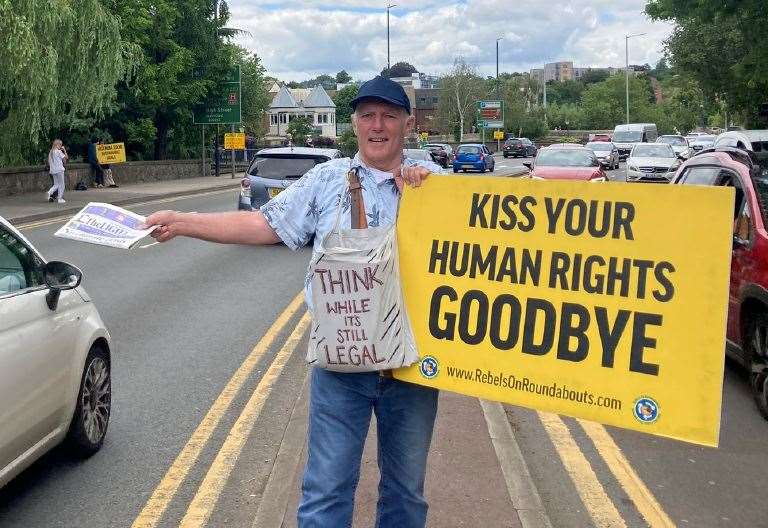The 15 minute cities conspiracy is an increasingly popular one and seems to be a wilful misunderstanding of a pretty sensible planning idea.
That said, the zoning plan for Canterbury seems a bad idea (I’ve been and it doesn’t seem big enough for this not to be inconvenient) and I imagine it’d make a lot of people unhappy, whether they were a conspiracy theorist or not.
Obligate motorists will make up all sorts of ridiculous things in order to ensure they can drive everywhere, at any time, and at whatever speed they choose.
Like, I like my car, and I like driving, but I wish I could walk 5 minutes and buy a pint of milk.
I agree about 15 minutes cities being a pleasant proposition. I live in quite an average town in Derbyshire and I had to collect a small parcel from Argos, yesterday. I decided to go out on my bike and collect the parcel from 2 miles away on the route back in from my bike ride. I own a car and could have used that. The amount of traffic and general busyness of vehicles in my ordinary town makes it much more unpleasant when you’re trying to use ‘green’ methods of transport.
If a quarter of the traffic was eradicated from my town it would be great. I’ve got two gyms I can think of that are about 20 minutes walk away and all the amenities I need. Sounds okay to me. Get some of the fatties that are driving but could walk out on their legs, I say.
And is based on a ring road that doesn’t exit
Ah, well yes, extra silly.
I thought this would be an interesting read but to be honest, I stopped at soon as I saw the placard that said “CO² isn’t a pollutant.” Climate change already gives me anxiety, so to see someone dismiss proven science just makes me angry.
That means nothing to these people.
Also somehow the word “pollutant” sets of my “probably BS” alarm, along with “toxins”.
Anyone using “mainstream media” and “narrative” (to try and sound clever) works wonders for me. 😏
I’d say they managed to be vaguely accurate despite their best efforts: co2 is part of normal air and is one of the most harmless “pollutants” we put out, it’s only a problem because the volume is so large and it doesn’t go away, so calling it a pollutant is somewhat borderline, it’s not comparable to cfcs, lead, carbon monoxide, which are more traditional “literally poison” pollutants.
All of which misses the point that whether it’s a pollutant or not it’s still slowly but surely ruining the planet for everyone.
In other words: if they’d rather describe it as a dangerously imbalanced byproduct, that’s perfectly reasonable, but really doesn’t change anything:







